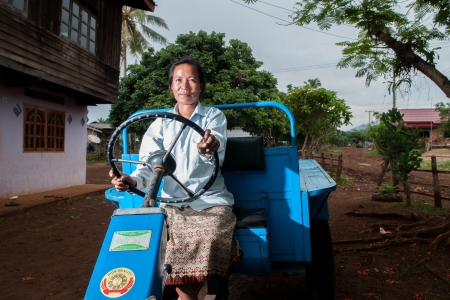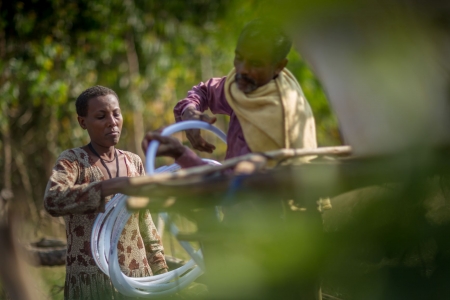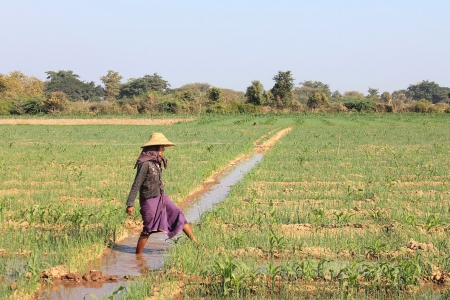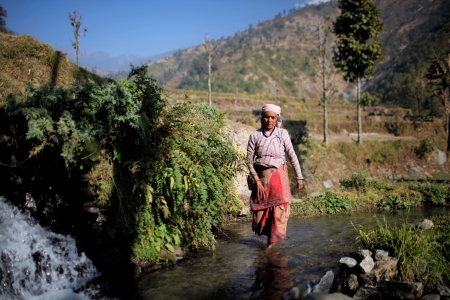Community water management investments in Tajikistan are now better targeted to women, with an aim to increase food production and stabilize farming systems.
The changes came after an evaluation by the International Water Management Institute (IWMI) and CGIAR Research Program on Water, Land and Ecosystems (WLE) found that not addressing the needs of women can harm a project’s prospects. As more and more men migrate from farms, women have been thrust into farm management roles in Tajikistan and around the developing world.
With support from the United States Agency for International Development (USAID), Tajikistan introduced water user associations (WUAs) in 2012 and trained thousands of farm managers to take charge of their own water management decisions. IWMI evaluated these WUAs over a four-year period, to better understand impacts and areas for improvement.
IWMI found that providing repeated agronomic training of farm managers and WUAs significantly improved WUA financial performance, farmer participation and fee recovery. In addition, water delivery services, cultivated area and crop diversity also showed remarkable improvements.
But there was an unexpected finding: While untrained male farmers also benefited from these trainings, untrained female farmers were not accessing these benefits.
The program targeted those named as manager in the farm title – 98% of whom were men. But male migration often left untrained women in charge of farms – excluded from training under this system. And as these shifts occurred, knowledge on how to take part in WUA activities was mostly being transferred to other male shareholders, but not to women.
Despite being at a disadvantage, women like Abdullaeva Uguloi, one of the few women to head a WUA, feel that they could be making important contributions: “All water user associations should be headed by women. There is so much work, especially at the beginning, but you have to balance so many tasks, and you cannot give up. Women are more likely to overcome all the barriers. You have to be happy to always be working. Women are much better at this than men.”
The evaluation also found that training programs were also seldom tailored to the timing, location and educational needs of women. This left them ill-equipped to step in and run the farms, secure water for irrigation, or even cultivate their home gardens.
Based on these findings, IWMI recommended targeting women farmers. With more knowledge and skills, women could then better contribute to WUA decisions and secure water for their farms and kitchen gardens. IWMI also recommended redesigning training materials, using women trainers, organizing childcare support and holding trainings in locations that are easily accessible for women.
WLE partners reported that these recommendations have been incorporated into USAID’s Feed the Future’s Global Learning Agenda, and contributed to a re-targeting of programs in Tajikistan. Chemonics, the implementing agency, re-focused the program on building the capacities of female irrigators.
As gendered migration trends look set to continue, making sure women have the skills and knowledge to participate in water management will help ensure the success of farms – and of farming systems. In this way, women can more fully participate in the decisions that so profoundly affect their lives.
This Story of Change is adapted from the WLE Annual Report 2018-19. Play the online game and find out how Agricultural Challenges are Meeting their Match.










%5b2%5d/index.jpg?itok=cmTC-WgA&c=feafd7f5ab7d60c363652d23929d0aee)





